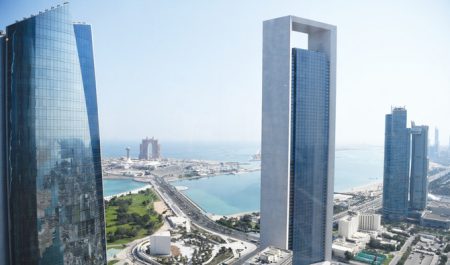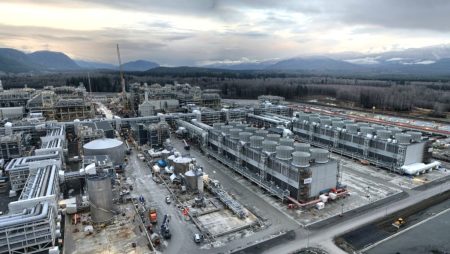 Moscow/Warsaw — A gas transit deal between Russia and Poland that expires later this month will not be renewed, Russia’s Gazprom said, as Warsaw aligns its energy regulations with European Union rules and curbs its decades-old dependence on Russian fuel.
Moscow/Warsaw — A gas transit deal between Russia and Poland that expires later this month will not be renewed, Russia’s Gazprom said, as Warsaw aligns its energy regulations with European Union rules and curbs its decades-old dependence on Russian fuel.
Tensions between Moscow and Warsaw over gas imports are part of wider political strain between Russia and the West, since Moscow’s annexation of Crimea from gas-producing Ukraine in 2014.
Warsaw has repeatedly said it will not buy any Russian gas after 2022, when another long-term supply deal will end. Instead, it will take pipeline deliveries from Norway and buy sea-borne cargoes of liquefied natural gas, including from the United States.
“Effectively, the current gas deal is over,” Gazprom’s spokesman Sergei Kupriyanov told Reuters. He said gas would still transit through Poland, but did not go into detail about whether transit fees might rise. Poland has long complained the fees are too low.
Poland’s transit deal, which dates back to the 1990s, is tied to the Yamal pipeline that carries Russian gas from the northern Yamal peninsula to Poland and on to Germany. It has annual capacity of 33 billion cubic metres (bcm).
After the deal expires, Gazprom can book short-term transit capacity with Gaz-System, the operator of Polish pipeline system.
Gaz-System told Reuters the capacity for May 17-18 will be available through an auction on May 17.
The auction for quarterly capacity for the period July 1 – Sept 30 was held on May 4.
Russia’s Gazprom Neft rebuffs proposal from Iraqi Kurdistan to cut investments
“The system users booked a significant (around 80%) capacity at the Yamal pipeline for the quarter starting on July 1,” Gaz-System said without revealing the users.
Gazprom declined to comment on the auctions.
TRANSIT CAPACITY SURPLUS
In theory, Russia will have access to surplus transit capacity following the completion of the Nord Stream-2 undersea pipeline expected early next year, although construction is suspended for now because of U.S. sanctions.
The Nord Stream-2 pipeline has for years divided opinion in the European Union, as Germany argued there was a strong business case, while other nations said it was political and breached EU rules on pipeline access.
On Friday, Germany’s energy regulator declined to grant a waiver of European Union gas directives to the operators of the pipeline.
Nord Stream-2 also faces the problem of a collapse in energy demand because of the impact of the novel coronavirus.
Gazprom’s exports to Europe this year are expected to drop to 167 bcm from 199 bcm in 2019.
Poland’s gas demand is about 17 bcm a year, with more than half provided by Russia under the long-term Gazprom contract.
For futures supplies, Poland is expanding, an LNG terminal in Swinoujscie on its Baltic coast. It is also constructing a pipeline to Norway.
Follow us on twitter
– Reuters



